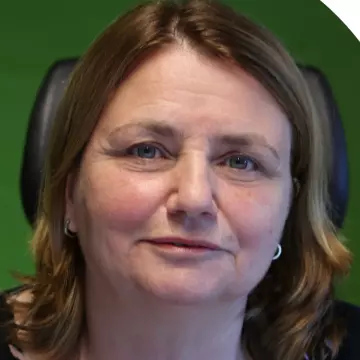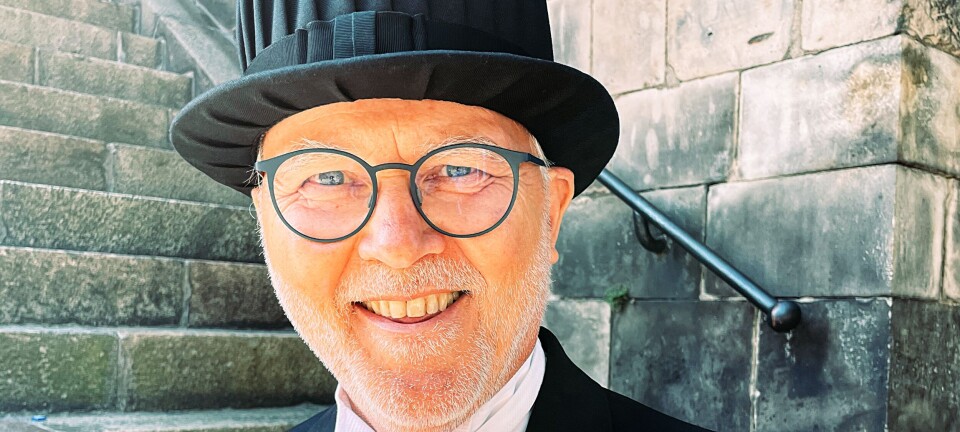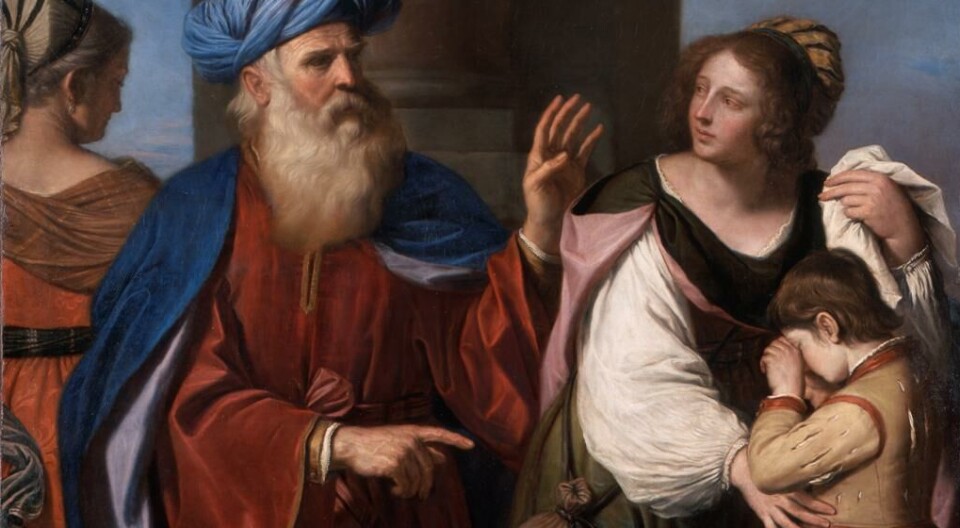
Pastor: “I believe it was an angel that called"
The Filadelfia pastor believes in angel encounters. The Norwegian Princess Märtha has invoked angels. "We have to accept that it's possible to encounter angels today," says a theologian.
“We were about 15 people standing in a circle, singing to God and Jesus in an atmosphere of holiness and purity. A small child was also there. She noticed that a figure was standing behind each of us. I believe they were angels,” says Lars Petter Flatøy, pastor of the Filadelfia Free Church in Arendal, Norway.
Stories keep popping up about people who have seen or met angels. So maybe it’s not so strange that 23 per cent of adults in Norway believe in angels, according to a 2022 survey (link in Norwegian).
Nevertheless, it caused a stir among both Christians and non-Christians when Princess Märtha of Norway started an angel school a few years ago. Many found it strange or blasphemous that she claimed to communicate with angels and could teach others to do so.
“The church tends to act cautiously, almost to the point of avoiding the topic, when it comes to encounters with angels or making an ideology out of the angels,” says Magnar Kartveit.
He is professor emeritus of theology at VID Specialized University.
“It’s easy to confuse this with mental health problems, where people hear voices and believe that God or angels are speaking to them. Angels can be misused by people who are ill or who have their own agendas,” he says.
"The church needs to accept angel encounters"
Raag Rolfsen is a philosopher, theologian, and pastor of the Church of Norway in Sandefjord. He also finds angel encounters a somewhat difficult topic.
“I'm actually quite rational and so my immediate response is one of scepticism. But I believe that the church needs to accept that it’s possible to encounter angels today,” says Rolfsen.
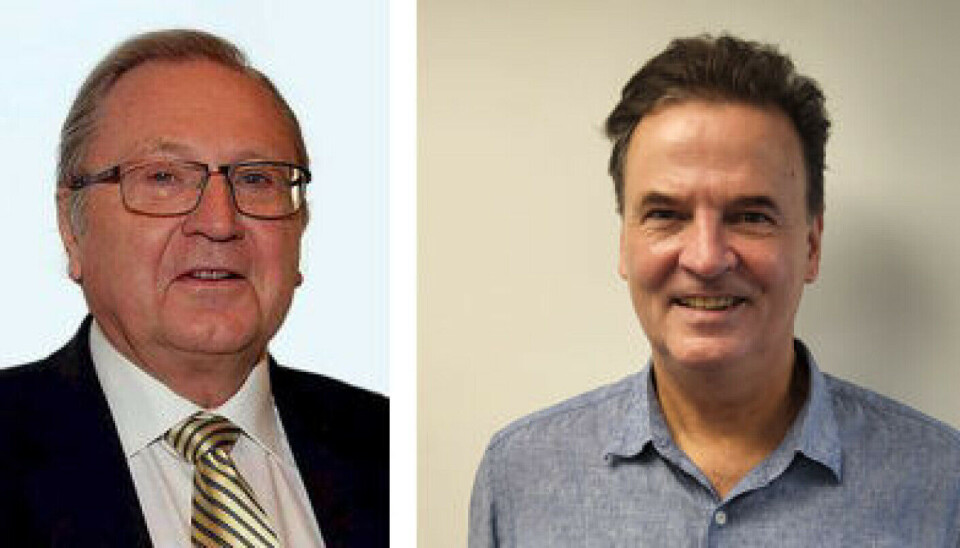
“When meeting people who have experiences with angels, as a church, we need to investigate it and have a good conversation, to see if this was a genuine encounter or if it might be an expression of a person’s mental health. But we accept that it can happen,” he says.
In the Filadelfia Free Church in Arendal, Pastor Lars Petter Flatøy is not at all sceptical.
Angels that push and call
Flatøy has plenty of stories about encounters with angels. A family member of his was cycling down a road when he encountered a car speeding towards him. He felt a kind of physical pressure before the crash. The bike and car were completely wrecked and ended up in the ditch. Flatøy’s relative remained unharmed on the road.
“I’m convinced that his guardian angel protected him. His whole life, he has been strengthened by the prayers of his parents and grandparents,” says Flatøy.
A friend from Iran was once stranded in Turkey and needed 5,000 USD to continue on. Suddenly, he received a call from an unknown number in Dubai. The voice asked if the Iranian needed help. He admitted that he was in trouble. The money was sent immediately. When he reached his destination, he called to say thank you. But the phone number had never existed.
“I believe it was an angel that called him,” he says.
The doctrine of angels
Two theologians in particular have developed angelology – the study of angels in the Bible.
The first was Dionysius the Areopagite. He lived a few centuries after the New Testament was completed and is considered to have been the first Christian bishop of Athens.
Dionysius divided angels into three groups. At the top of the celestial hierarchy are the seraphim, cherubim, and thrones, who stand closest to God. Next comes a group of angels he called dominions, virtues, and powers. They carry out God's will through miracles, peace work, and delegating jobs to the third group.
This third group is closest to humans. Some protect countries and cities. Others, like Gabriel and Michael, are God's messengers. Those with the lowest status are guardian angels for individuals.
According to Rolfsen, the Church of Norway mostly focuses on the first group.
“The highest order, the angelic beings who reside in heaven, are the ones the congregation sings God's praises with. Angels certainly have a place in our liturgy and in our understanding of religion. They just don't hold as signficant a role in many people's faith. That's how it's become. Many of us don’t believe in angels as physical beings,” says Rolfsen.
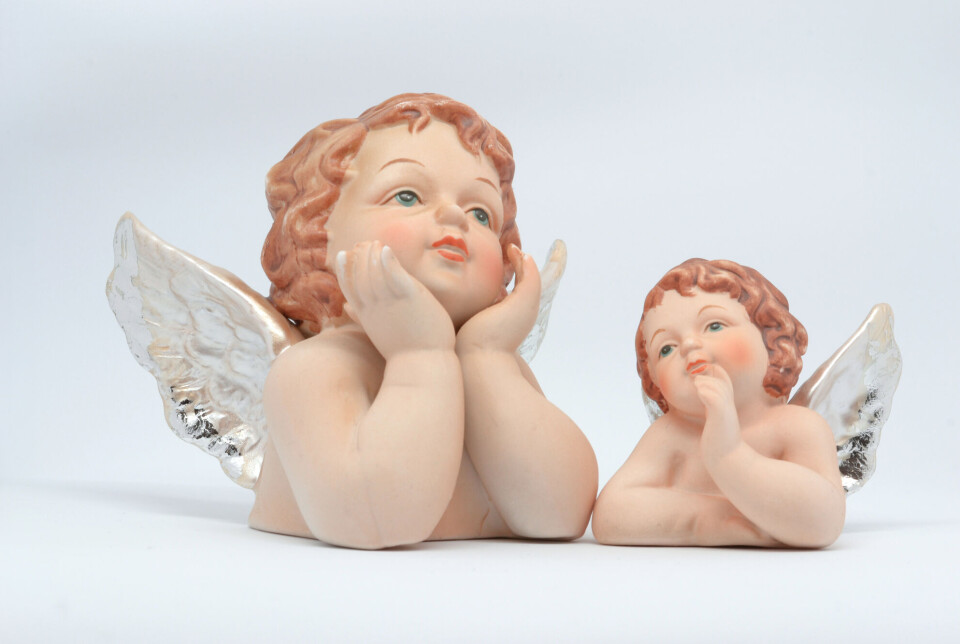
Condensed air
Thomas Aquinas elaborated on angelology in the 13th century.
“Aquinas believed that angels are condensed air. The concept isn’t easy to understand, but it was his attempt to avoid an overly concrete definition of angels, while not totally rejecting them,” says Magnar Kartveit.
According to Aquinas, angels do not have bodies or any other physical form that we can see. They have free will, which explains why some angels become demons.
The good angels maintain order in the world and carry out God's will. Aquinas also believed that each of us has a guardian angel who guides and protects us throughout life.
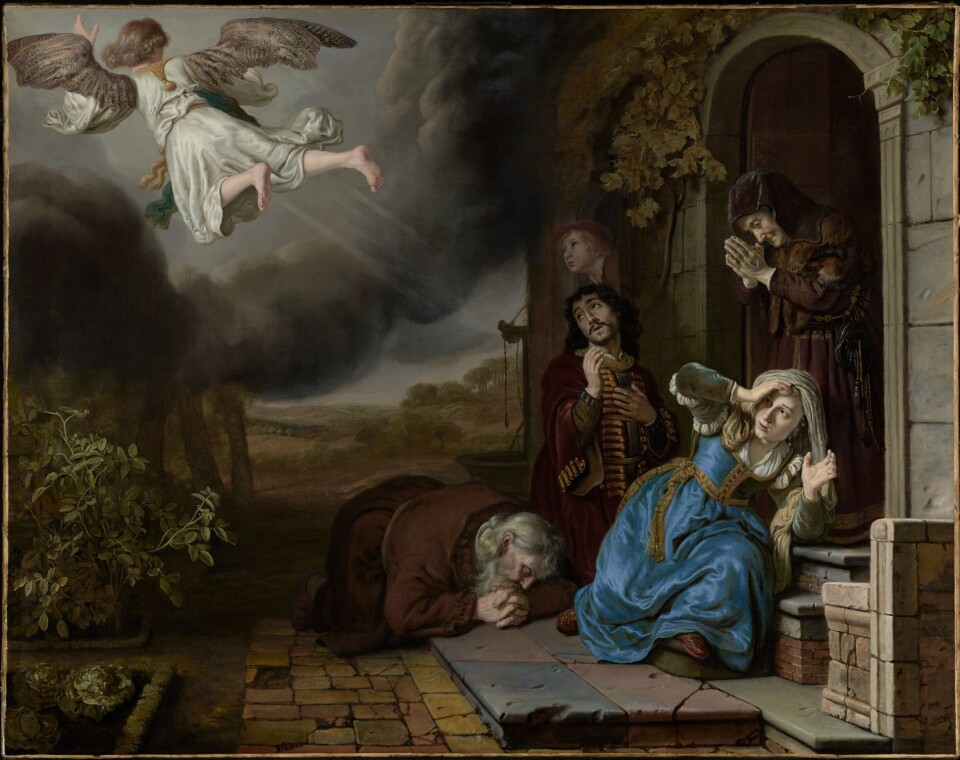
Guardian angels watch over children and adults
“The idea that we have a guardian angel is still very popular. In the past, children’s bedrooms typically had a picture of an angel standing guard over a child, often by a cliff. Jesus said that young children have angels in heaven who look after them,” says Kartveit.
The New Testament warns against worshipping angels.
“But the church has never rejected the idea of guardian angels or that God watches over us through angels,” he says.
Pastor Flatøy from Filadelfia has spoken with many people who say they have seen angels.
“Some of those who have seen angels say that they have wings. But most see them as a luminous figure standing beside or behind them,” he says.
Sceptical Norwegians
Seventh-day Adventists believe that angels still reveal themselves to people today. But Tor Tjeransen is not sure what they look like.
“We believe that angels are able to manifest themselves in different ways,” he says.
Tjeransen works with mission and media in the Seventh-day Adventist Church.
They hear about angel encounters from their missionaries.
“This happens especially in countries with a majority of Muslims. They’ve seen luminous figures who urge them to become Christians. I believe God is conscious of where and when He reveals Himself. We sceptical Norwegians find it harder to accept such encounters,” says Tjeransen.
“But if someone comes and tells us about an encounter with an angel, we wouldn't dismiss it, though they would probably be met with some raised eyebrows,” he says.
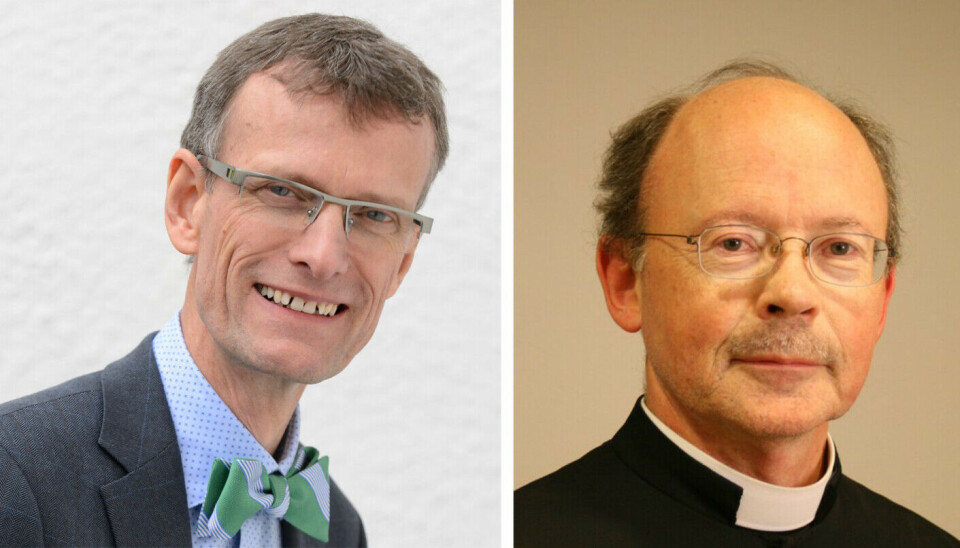
Encounters with Catholics are rare
Although the Bible contains several stories of encounters between angels and humans, it did not happen often, according to Oddvar Moi, a priest in the Oslo Catholic Diocese.
“People who met angels were probably shocked,” says Moi.
Some of the saints told of angelic encounters. Padre Pio was an Italian priest known for the stigmata on his hands and feet. He was often visited by angels.
The Vatican was sceptical of Padre Pio for a long time, but eventually changed its stance.
“The stigmata and his work were what they regarded as important when Padre Pio was declared a saint in 2002, more than the angel encounters,” says Moi.
The Catholic Church conducts thorough investigations when considering someone for sainthood. They have no similar process when people report angel encounters.
“We have Catholics from 150 nations in the Oslo church. They have many varied experiences, including with angels. If someone tells me about a spiritual experience with angels, and it makes them a better person, I think that's wonderful,” says Moi.
However, he thinks that a Catholic who sees or talks to angels would initially be met with some scepticism.
Bullying and resistance against Märtha
Princess Märtha faced much scepticism and criticism for ten years due to her angel school.
Raag Rolfsen wrote an op-ed in the Christian newspaper Vårt Land in which he defended the princess.
“I pointed out how Märtha was being bullied for her belief in angels, and wrote that this was prejudiced. Even if we don't believe in angels ourselves, we must be open to her and others' spiritual experiences. The weakness of the church's approach to belief in angels in modern times is that we haven't even listened,” he says.
Magnar Kartveit also believes that Märtha faced too much opposition.
“The idea of guardian angels goes way back. There was no reason to chastise her for this,” he says.
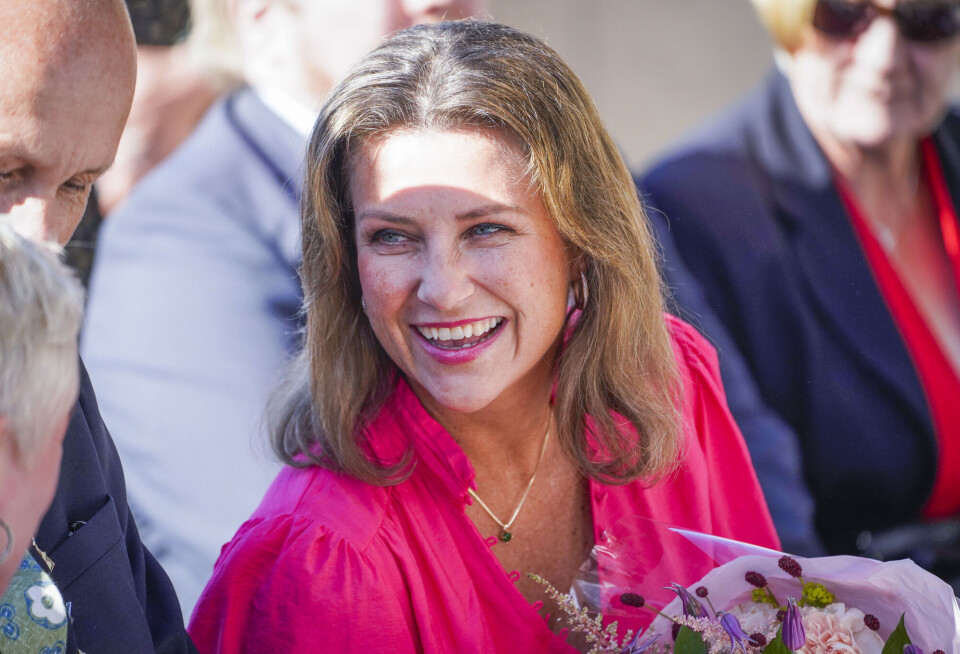
How to meet archangel Gabriel
Märtha also published a book titled Englenes hemmeligheter (The secrets of angels). In it, you can learn how to communicate with angels, including the two mentioned by name in the Bible: Gabriel and Michael.
'Angels are pure divine power. They are part of God or whatever you want to call the creative force,' Märtha writes in the book.
Gabriel usually sits at God's left hand, according to the book, but this is how you can arrange a meeting:
Sit down and breathe deeply. Release unnecessary energy and breathe in your own essence. Then plave a hand on your heart. Click your aura into place. Next, you need to get rid of all old information you have about Gabriel. Then you're ready to let the archangel appear.
When he is present, ask him to turn around, so that you can see him – or her, since Märtha describes Gabriel as feminine – from all sides. Has the angel brought something? Check what it can be used for.
Then the conversation begins: Does archangel Gabriel have something to tell you? Would it be better to contact him at another time? Ask whatever you want to know.
Do Märtha's angels resemble biblical angels?
Märtha's angels differ from the ones in the Bible in several ways.
Notto Reidar Thelle wrote the book Prinsessens engler (The princess’ angels). He is a professor emeritus from the University of Oslo's Faculty of Theology.
In the book, he points out that the Bible's angels come uninvited, while Märtha's angels can be summoned. The old angels came for many reasons, bringing messages, protection, or punishment. The new angels come to give whoever calls upon them a better life. They can be managed for personal needs.
The angels Märtha encounters are more aligned with a self-development trend, focused on creating a good life, according to Thelle. They nevertheless reflect a spiritual yearning in our time, he writes.
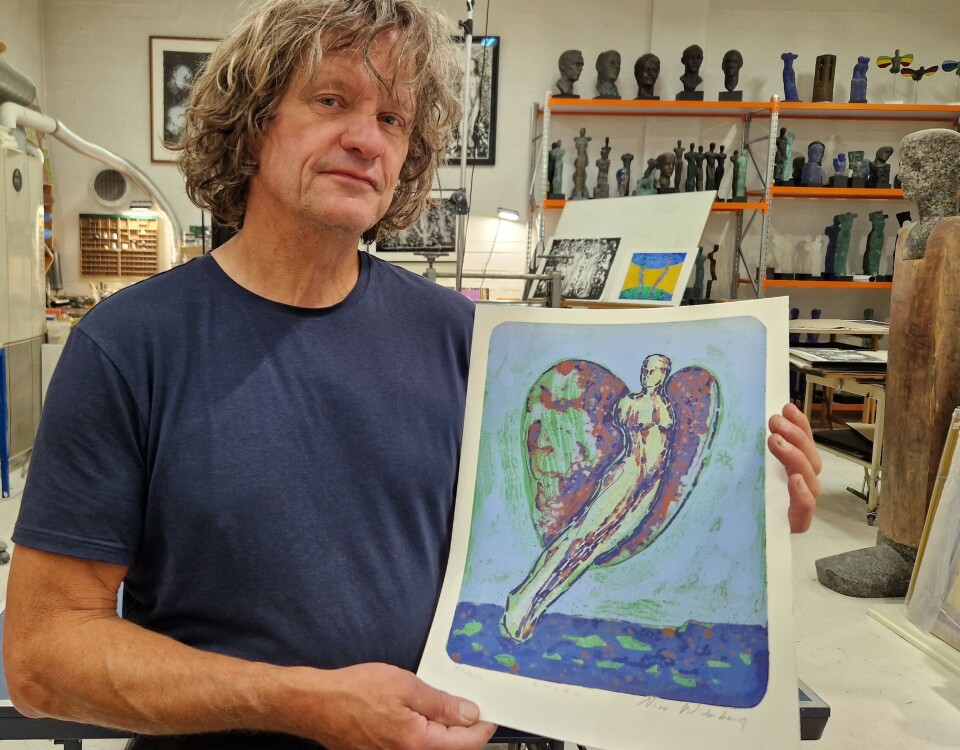
Angels or demons
“Learning how to meet angels is not something that happens in our church. Aura is not a term used in a Catholic context,” says Oddvar Moi from the Catholic Church.
Although he is open to angel encounters, Lars Petter Flatøy from Filadelfia had concerns when Märtha opened her angel school.
"I thought: What is this?Is she really talking to angels from God, or are they demons pretending to be angels? Demons do not accept Jesus, they never speak the truth, and they deceive people,” says Flatøy.
Raag Rolfsen from the Church of Norway believes it is important to take people seriously.
“We should listen to people's experiences of encountering angels, regardless of what we believe actually happened. We can’t be completely cynical and rational when it comes to such experiences, because there's always something worth listening to and something true,” he says.
A challenge for the church
Rolfsen believes that the Church of Norway has been prejudiced and dismissed angel encounters as old superstitions.
“Many believe that secularism has run its course. The rational, logic-based interpretation of reality has not given us a much better world. So a lot of people are heading elsewhere, but we don't know where. This is a challenge for the church,” he says.
The church has the longest tradition with angels.
“Therefore, we must try to offer healthy, good teaching about angels that isn’t scary, but that can be of help to people,” Rolfsen says.
“But some of us don’t feel we have much need for this. I’m not the type who needs a guardian angel or anything like that. I think it's strange that some people have guardian angels, while others don't,” he says.
———
Translated by Ingrid P. Nuse
Read the Norwegian version of this article on forskning.no







